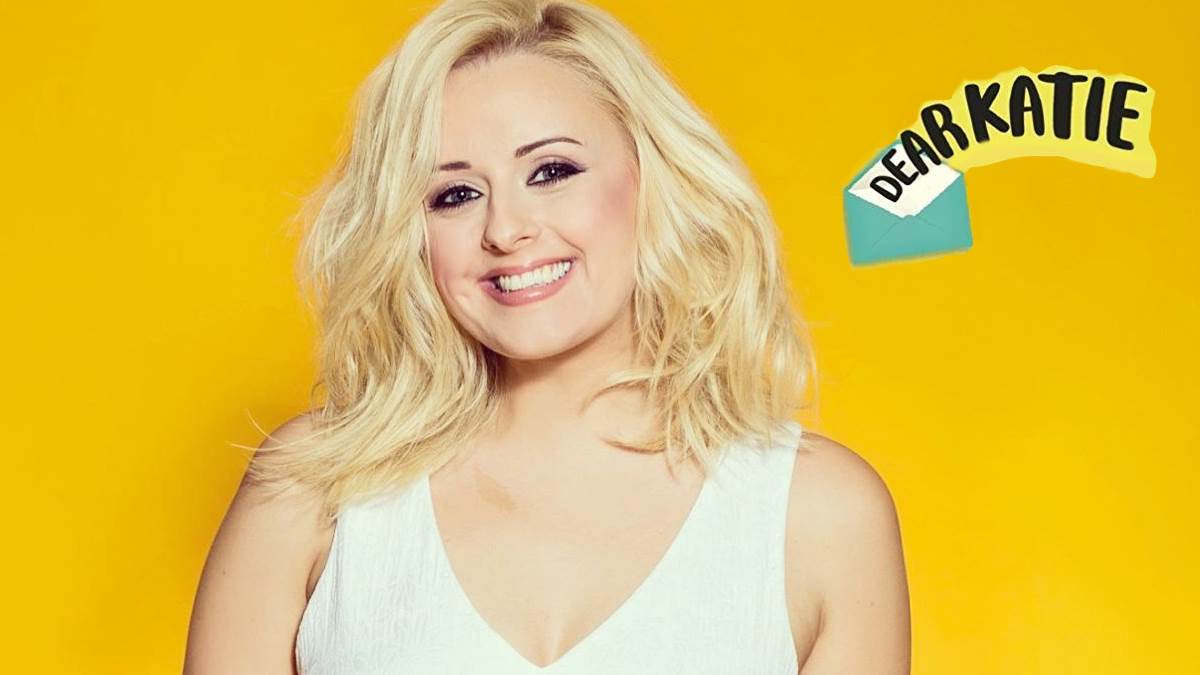Growing up is hard to do - Katie Thistleton is the nation's new agony aunt
Published on: 08 May 2017 Author: Alex Strick
CBBC presenter Katie Thistleton chats to Alex Strick about her new book, which wants to help young people CBBC presenter Katie Thistleton chats to Alex Strick about her new book, which wants to help young people with their mental health - a topic that's close to home.
Katie, what inspired this project?
I have suffered with my own mental health problems, and now realise that these issues started in my childhood and teen years.
As a CBBC presenter, I also often meet young people, and have young people following me on my social media accounts, particularly young girls. This has made me ever more aware of the pressures faced by young people today and the ever-growing need for emotional support for the next generation.

There appears to have been a disturbing increase in mental health issues amongst young people, and rates of depression have soared.
People often say that the reason these figures have risen is due to more people seeking help and speaking out about mental health issues nowadays. Whilst I think this is probably true (although, we still don't speak out about mental health nearly enough as we should!), I also think the mental health of young people has become ever more strained. The emotions we have always struggled with, in those years when we are becoming young adults, are even more difficult to comprehend now in a world full of increasing pressures to look good, succeed and be somebody.
I think social media has a huge part to play in this and educating young people about the internet and how overuse can affect their mental health is something we really need to focus on.
What advice will your book, Dear Katie (out September 2017), include?
We have spent the past six months or so asking young people to send in letters about anything they are worrying about. We've received lots from social media, and are now working with schools, libraries and charities to make sure we get a wide range of children and teens from different backgrounds. The book will include these letters from young people - I believe reading a letter from another person your age going through the same thing as you is help in itself.
There will also be advice from myself, TV doctor and Radio 1's Dr Radha Modgil and child psychotherapist Sally Angel. The book will include embarrassing stories, light-hearted Q & A sections and inspirational quotes.
What do you hope the book will achieve?
I hope that a wide range of young people will pick up the book and read the advice. I want this book not to be viewed as a self-help book, only to be read by those who know they need it, but by all young people.
We all need emotional advice and support, and if we can help young people with their emotions before they develop into mental health problems, we can really make a difference for the next generation.
The book will be split up into sections including mental health, bullying, puberty, body image, etc, so there is something for everyone. I hope that young people read the book and realise that the feelings they are experiencing are perfectly OK and supposed to happen. I hope that they will feel better about themselves and more confident after reading it.
I read that growing up your ambition was to be an author like J K Rowling - can you tell us more about your passion for books?
Writing a book has always been my one and only dream! I have done lots of other brilliant things - presenting on CBBC and Radio 1 - but nothing will beat the moment I am able to physically hold the book I have written in my hands.
My passion for books inspired the CBBC Book Club, which I currently present weekly on the CBBC channel. We interview authors and show content sent in by viewers. It's proved really popular and I'm thrilled that we are encouraging kids to get reading.
How else do you think books for children/young adults might help support mental health and improve awareness?
I think reading is great for your mental health anyway, no matter what it is! I also credit books like Matt Haig's Reasons to Stay Alive and Cheryl Strayed's Tiny Beautiful Things for changing, possibly even saving, my life.
I think reading true accounts of other people's emotions, thoughts, feelings and experiences of mental health problems is truly beneficial to all of us, not just those who are suffering. I also think accurate accounts and positive representations of mental health problems in fiction are incredibly important, for both kids and adults.
Topics: 9-11 years, 12+, Interview, Mental health, Features





